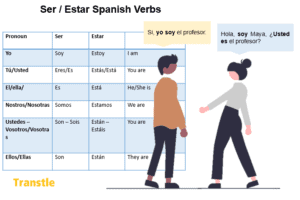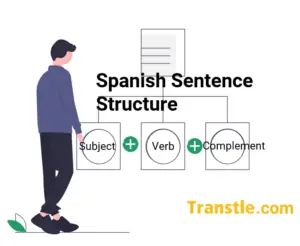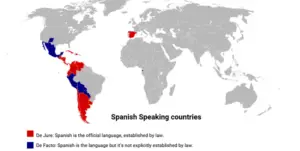Holidays in Spanish: Vocabulary For Celebrations in Spanish
How to say Christmas, Halloween, Mother's Day and more
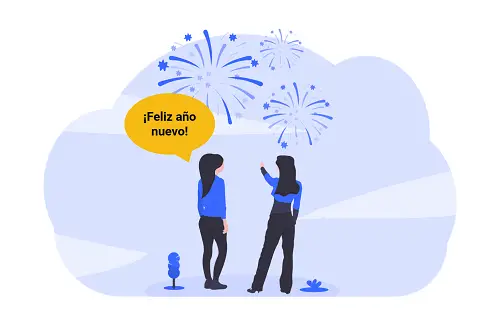
Holidays
Holidays are special occasions that commemorate or celebrate patriotic, historical, or religious events. They are typically established by law and are recognized as non-working days in many countries. Holidays can also refer to a period of time spent traveling or taking a break from one’s usual routine.
It’s worth noting that holidays that are not established by law are often referred to as celebrations, and may not be recognized as non-working days. In Spanish, the word “vacaciones” is commonly used to refer to holidays in the sense of taking time off from work or school for a vacation.
Lis of holidays in Spanish
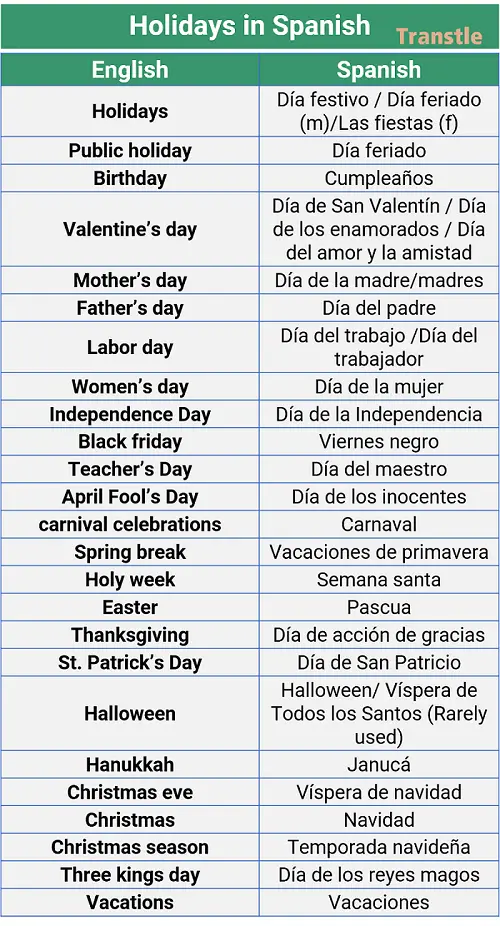
| English | Spanish |
| Holidays | Día festivo / Día feriado (m)/Las fiestas (f) |
| Public holiday | Día feriado |
| Birthday | Cumpleaños |
| Valentine’s day | Día de San Valentín / Día de los enamorados / Día del amor y la amistad |
| Mother’s day | Día de la madre/madres |
| Father’s day | Dia del padre |
| Labor day | Dia del trabajo /Día del trabajador |
| Women’s day | Dia de la mujer |
| Independence Day | Día de la Independencia |
| Black friday | Viernes negro |
| Teacher’s Day | Día del maestro |
| April Fool’s Day | día de los inocentes |
| carnival celebrations | Carnaval |
| Spring break | Vacaciones de primavera |
| Holy week | Semana santa |
| Easter | Pascua |
| Thanksgiving | Día de acción de gracias |
| St. Patrick’s Day | Día de San Patricio |
| Halloween | Halloween/ Víspera de Todos los Santos (Rarely used) |
| Hanukkah | Janucá |
| Christmas eve | Víspera de navidad |
| Christmas | Navidad |
| Season (christmas season) | Temporada |
| Three king’s day | Día de reyes |
| Vacations | Vacaciones |
Sentences with the holidays in Spanish
- In Spanish, you use the definite article “el” before the name of the holiday because “día” (day) is a masculine singular noun.
Example:
Workers day is on Friday. – El día del trabajo es el viernes. Mother’s day is a very special date. – El día de las madres es una fecha muy especial. |
- To say something occurring during that holiday you use “En“
In Christmas. – En navidad. I’ll see you on Halloween. – Te veré en halloween. |
How to wish someone a happy day/birthday/holiday in Spanish
To wish someone a happy holiday, you say: Feliz + holiday. Here are some ways to wish someone a happy holiday or special occasion in Spanish:
|
Read next

